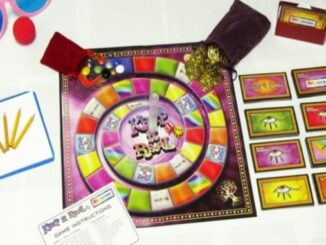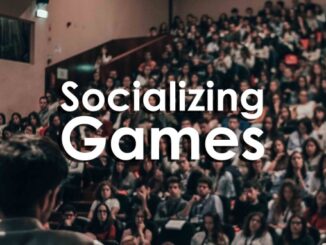
First, some definitions: Prototyping is a first, typical or preliminary model of something, especially a machine, from which other forms are developed or copied. Playtesting is a method of quality control that takes place at many points during the video game design process. A selected group of users play unfinished versions of a game to work out flaws in gameplay, level design and other basic elements, as well as to discover and resolve bugs and glitches.
In addition, the process mainly involves clarifying the vague points, adding fun elements or reducing boredom, balancing the victory situations, and so on. This according to Techopedia. While Playtesting is a term that is applied commonly among PC and or role-playing games, we applied the basic playtesting principles first to our physical board game version.
There’s more about the Ubuntu Game in this article about debriefing and feedback
Validating the Game through Playtesting
Both Prototyping and Playtesting play an important hand in hand role in validating your game or application. We created our version of our game or application, often called a beta test or prototype, based on some early assumptions about our MTP which included who the target audience is, what problem we’ve identified and are solving and how we can create an intuitive, enjoyable gaming experience for our target audience. In the chicken and the egg schematic, your prototype of course precedes your playtesting, which puts your prototype through some hopefully tough validation paces.
Most of us develop our prototypes based on an initial, limited number of features and characteristics that we generally feel will have broad based acceptance among our audience and user community. This is also commonly called an MVP or minimal viable product. At Games 2 Unite, with Ubuntu Game, we were ready to first try it out internally before we expose it to beta test customers or initial adopters. Our initial prototype was actually a physical board game.
Games 2 Unite launched its Ubuntu Game prototype in June. We built an MVP based on what our MTP was. Our target audience is teenagers of different ethnicities and cultures who together play our game to, through questions and collaborative activities, learn about their differences through conversations around diversity, inclusion and equality along with some of the critical issues facing the world today like climate change or overfishing. Once our MVP was created, we turned to Playtesting where play testers playing our game.
Piloting with the Target Audience
First, we play-tested our physical board game prototype internally to validate the mechanics of the game and to fine tune our user instructions as needed, we were then ready to take on exposing the prototype to our beta test users. Our early beta customers not only played the game, but recorded feedback on a micro level detail, validating our actual questions in terms of what landed well for a teenage audience. Playtesting with our ideal audience was invaluable in validating our game and processing improvements that went into the next iteration of the game.
Our next Playtesting will involve the digital version of our game through a platform called Tabletopia. We will again engage our target audience now with the digital version of the prototype and not only process the feedback but compare the feedback to the initial physical board game version. The true test will be what is called Blind Testing, where the testers have no prior experience or exposure to the game.
Prototyping is an important milestone and accomplishment as it serves as the first version of your gaming application, but one word of caution is to not get too attached! Some of the feedback you can get through Playtesting can be critical, even harsh and with any MVP or prototype, be prepared for the worst and the best. Even if you have to significantly course-correct given the feedback on your prototype, imagine staying the course without that feedback. This would be a sure failure!
The Ubuntu Game features in our Make and Break live play sessions
- Prototyping and Playtesting – Games 2 Unite’s Ubuntu Game - 11th September 2021
- Debriefing and Feedback for Ubuntu Game - 15th July 2021





Be the first to comment